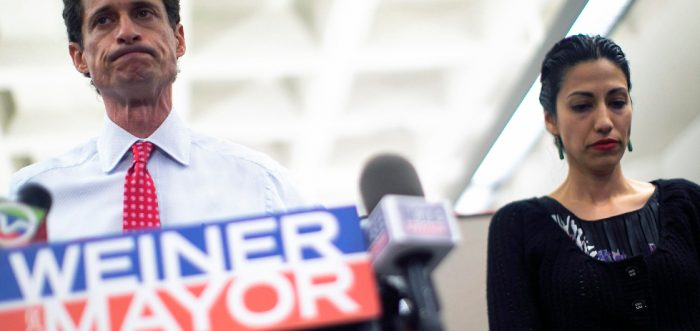
There’s not exactly a shortage of stunning documentaries about politicians, politics, and the campaigns they drive. More often than not, the success of these works is tied to a certain idiosyncratic politician, or a microcosmic political event that offers universal implications when hit with a documentary lens. In Australia, Rats in the Ranks – which followed the Leichardt Mayoral Elections of 1994 – offers a clear example of this style of political documentary. On the other side of the Pacific Ocean, 2005’s Street Fight still sits as one of the most memorable pieces in this sub-genre, following Cory Booker’s failed run to be Mayor of Newark, New Jersey. Cory Booker is a household name for those familiar with American politics; since the time of the documentary, he’s become a figure frequently held up as one of the bright lights of the Democratic Party. For Anthony Weiner, a big name within the same party, things haven’t turned out as well.
Context around a documentary like Josh Kriegman and Elyse Steinberg’s Weiner, is relatively important; specifically how incidental the collapse of Anthony Weiner’s “comeback” was. At the start of the film, we’re following a disgraced yet perseverant politician, in the process of winning back the community he’s hoping to represent – and at the time Kriegman and Steinberg’s piece is beginning, Weiner’s success isn’t an unfathomable idea. He’s up in the polls early into the campaign, and has a ‘path to redemption’ narrative working in his favour. After a second scandal halts this momentum, Weiner’s career collapses, and a documentary expecting to cover his comeback instead records his downfall. It’s a godsend for a documentary maker as something completely outrageous and unexpected, and it assures that Weiner is fairly entertaining and insightful throughout. At the same time, it almost feels like Kriegman and Steinberg were faced with this change of pace, without adjusting the speed of their documentary to suit it.
From its sardonic opening Marshall McLuhan quote “the name of a man is a numbing blow from which he never recovers” to a relatively sincere montage of Weiner in Congress giving his characteristic impassioned speeches, holding up props, yelling at another speaker – Weiner comes across as a documentary unsure of exactly what it wants to be. In terms of editing, it can feel like a campaign ad at one stage, and a quirky piece on an unpredictable figure at others, but when it comes to the more intimate and crushing moments of Weiner’s trajectory, the documentary doesn’t find a way to full capture the gravity of the scenes. In one particularly memorable scene, after the second scandal has emerged, Anthony Weiner and Huma Abedin (his wife) are arguing in front of the camera. It feels stunted, voyeuristic, and uncomfortable to watch. In another scene, an agitated Weiner asks “aren’t you supposed to be a fly on the wall?” — it’s hard to tell.
Weiner is still worthwhile through the sheer absurdity of the story that plays out, and the access we get to the politician. We’re not really shown a ‘private’ side to Weiner, but instead how his political persona translates into smaller arenas; behind the scenes in the campaign, in taxis between events, and in conversations with staffers and Abedin. The Anthony Weiner that we see throughout the documentary is neurotic, narcissistic, and constantly obsessed with how he’s perceived. The task of ‘humanising’ this image doesn’t exactly play out, however, Weiner does provide a comprehensive picture of the idiosyncrasies of the former congressman’s political persona.
For those familiar with Anthony Weiner, the American political sphere, and even those interested in the machinations of a campaign, Weiner is likely to serve as an entertaining look at all of this. As a documentary and as a film, however, there’s this constant feeling throughout the work that it could have been something bigger; with more to say, or with a more authentic onscreen intimacy. A documentary like Street Fight is something that knows exactly what it wanted to be, and something that excelled as one of the best American political documentaries in recent years. Weiner, on the other hand, is able to hold itself together with the strength of its narrative and core figure. Beyond that, there’s so many squandered opportunities throughout the documentary – from the way it’s edited, to the manner in which Weiner is interviewed and approached throughout.
Around the Staff
| Jessica Ellicott | |
| Jake Moody | |
| Peter Walsh | |
| Virat Nehru | |
| Jaymes Durante |
